A Promise: An interview with Rebecca Hall
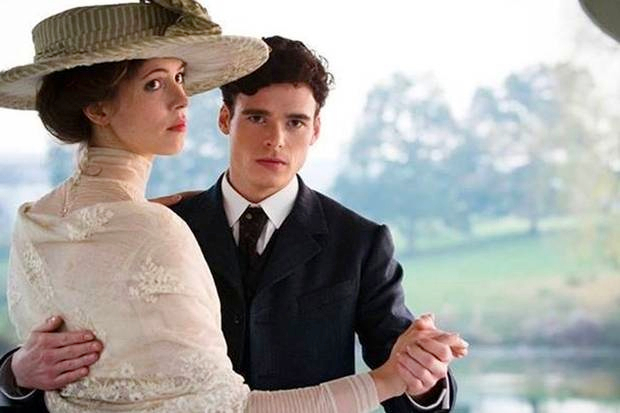
Rebecca Hall stars in Patrice Leconte’s latest period picture A Promise as an enigmatic woman who falls in love with the young secretary (Richard Madden) of her wealthy husband (Alan Rickman) in the Germany of the early 20th Century. As the work was presented at the 70th Venice Film Festival, the actress told us about how it was to work with a French director, what music she likes, her relationship with social media, stealing props from the set and much more!
Patrice told us that everything started from a casual meeting; is this right?
I was in Paris anyway and I got a call from my agent saying Patrice Leconte wants to meet you, and I thought: “Finally, this is my moment to act in a French film and speak French!” And I was crushed to realise it was in English.
I had to read the script on my iPhone because I didn’t have anything with me apart from that, because I was there for the weekend and I got it the night before meeting him.
Then we met for a coffee. I had no French at the time – it’s a little better now – and he had very little English at the time – it’s definitely a lot better now – and we still managed to have a very clear conversation.
I felt for the sake of wanting to impress him at the meeting that I should have read [the book].
In what respect is your character different from the book?
She’s quite different. There’s less of her interior voice in the book because she’s much more the sort of figure… in that sort of troubadour sense of watching things from afar, a kind of objectification, it’s removed, she’s more enigmatic in a way. In the film, she’s completely enigmatic and consciously so for about half of it, and suddenly the door comes down and you see everything.
What did you learn about relationships between then women and men’s roles?
I think I learnt…I don’t know what I learnt, a lot of things – that could take a long time to answer. How is it relevant? I can definitely answer that one. A story like this could never happen now, for obvious reasons; I think conceptually what it’s about is romanticism itself and notion of romanticism, which is in a sense relevant to all of us because we can all carry an idea of love, a notion of our fantasy of love, the perfect relationship. We can hold it in our heads for a lifetime. The actuality of making a relationship work in reality is a different thing, as we all know, and I think really that is what the film is about: two people who are holding an idea. In the end it would be sort of brash and Hollywood of us to immediately fall into each other’s arms.
The important thing is that’s the reality, you’ve had all this in your head and then you’re left with the reality of two people who don’t really know each other, and haven’t seen each other for ten years. I think that’s a really interesting concept and one that will always be relevant to us.
You’ve managed to portray an everyday woman in a very modern way; was this the director’s idea or your own?
It happened rather naturally; I have done other roles specifically in this period and I felt very different about it. I did a mini-series called Parade’s End, where I played a character called Sylvia Tietjens, who exists in exactly the same period as this, and it felt incredibly important to make her a museum piece – with a posh upper-class accent and all the rest of it – because there was something so English about it. With this, I felt that she is more of a universal character in a way, and if I wanted to be more authentic to the time I should have been speaking in German.
This was made by French people, shot in Belgium, it’s about Germans… it felt to me that those details were not relevant; instead it was important to turn her into someone warm and relatable.
Accent is so important in English acting. Does this make it very different, not having an accent to help pin her down?
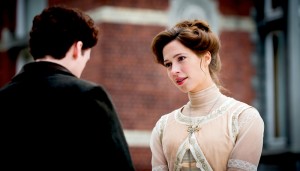 It’s more of a shot in the dark in a way. There’s a comfort to know who a character is, which is why it can be quite rewarding and fun, comforting to play real people. You have a marker: I know this is working because I sound like that person or I’m doing that accent.
It’s more of a shot in the dark in a way. There’s a comfort to know who a character is, which is why it can be quite rewarding and fun, comforting to play real people. You have a marker: I know this is working because I sound like that person or I’m doing that accent.
It’s not any more or less creative to do it this way but you’re working with a blank canvas, so you’re creating whatever you think is instinctively correct to bring this character to life.
Do you think love could survive over such a distance?
I don’t know!
What do you think is the future for them?
That was a conscious thing; I think it was important to be ambiguous, to have a hopeful ending. Who knows?
The ending of the book is totally different
Patrice is right: if we made the kind of film that he wanted to make and still had that ending it would’ve been miserable. But I think there is still a suggestion that romanticism is being fulfilled, but you don’t know. They are heading into dodgy times. That is part of what this film is about, the time and nostalgia, and holding onto ephemeral moments that will disappear forever. That is why we like period things: because we look back on it with rose-tinted glasses, holding onto this romantic notion of it. That’s what the film is dealing with.
Do you believe that thoughts of being in love when in a long-distance relationship can strengthen it?
I think that’s why this story is credible; it’s a sort of aphrodisiac to have that to hold onto when you have nothing else. For this character, the reality of it in her head is much stronger than anywhere else because she has very little to go on. I think that distance can be a potent aphrodisiac but I still think it can be misleading.
The relationship between Lotte and her husband is very safe; is she driven crazy by the young man because it’s a risky relationship? Do you think women like that?
That’s an interesting take on it and one that I didn’t think about. I know what you mean but I don’t think it’s applicable to her. To me, she’s a character full of light and warmth and optimism, always good in situations, who thinks she knows herself very well, when actually she’s so light in the beginning that she might fly away – she doesn’t know herself and her body. To me, it felt that the story was her growing up and working it out, and genuinely falling in love and not understanding it, but growing up to understand that process. I don’t think it was quite as simplistic as she liked the danger, because then she would’ve had the affair if she was one of those girls.
Are you familiar with Stefan Zweig?
No, I know who he was because in my local bookshop in London, there’s the recommended by the staff thing, and there’s always been the Stefan Zweig books there, all these beautiful editions. I’d always flick through it and think I’d probably like that, but I never read it. Now I have – Beware of Pity and a couple of others – and I’m a big fan of his now.
Music plays an important part in the film. How important is it in your life? Did you listen to special pieces while you were preparing for the film?
This is something I have completely in common with Lotte. If I could have been a musician I probably would have been. I love music. I always make a playlist for my characters; this one was more specific – a lot of Beethoven. It helps because there’s a sort of incubation period when you’re working out what she’s going to be. You spend a lot of time mooning around, walking around parks, listening to music and then you’re suddenly like: “Oh, ok.”
What can you find in your iPod?
You’d be surprised! I have a very broadly eclectic music taste.
Names!
Right now I’ve been listening to Nina Simone and – starting with the As – Academy of St Martin in the Fields, Abbie Lincoln, ABBA, ACDC…Adam Sandler, Adele, Aerosmith – oh dear – Hot and Brass Band, Howling Wolf, Ike & Tina Turner, Iggy Pop, Jacqui Wilson, Jackson Brown, Jacqueline Dupré…
Have you felt the difference between working with a French director and other directors?
I did notice the difference actually and I have to say I loved it. It might just be Patrice though: he has such a joyful exuberance about what he does and I think it’s quite infectious. Everyone on the set had that same joy – it was a small set, the same house; it was much more of a collective than other jobs I’ve done. Every week, each department had to throw a party in the house and then pay for it – one week it was the actors, then the sparks, then the costume department – and every Friday night we’d all socialise together, with great food and people taking turns DJing, great music and great wine. If we did the same thing in England you’d be lucky if you got a ham sandwich!
How was it working with Alan and Richard on the set?
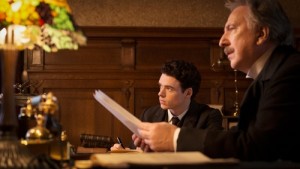 Really great; I love both of them. Alan Rickman is Alan Rickman! You can’t really compare them to anyone so of course, they’re different. But Richard is a really exciting young actor, and there aren’t so many of them. I think he’s got a really intelligent quality and he’s incredibly dedicated and cares enormously about what he does, he’s great fun and has a great openness to him, which I loved. We all had a really special time on this one. And we bonded because we were the three British people on set; everyone else was French or Belgium. We’d spend the whole time speaking French – badly – in between takes and then only speaking English on camera. It was a very weird way of doing it!
Really great; I love both of them. Alan Rickman is Alan Rickman! You can’t really compare them to anyone so of course, they’re different. But Richard is a really exciting young actor, and there aren’t so many of them. I think he’s got a really intelligent quality and he’s incredibly dedicated and cares enormously about what he does, he’s great fun and has a great openness to him, which I loved. We all had a really special time on this one. And we bonded because we were the three British people on set; everyone else was French or Belgium. We’d spend the whole time speaking French – badly – in between takes and then only speaking English on camera. It was a very weird way of doing it!
When it came to the actors’ party, what was your signature dish?
We didn’t actually do one because there were only three of us. I clubbed together with the girls’ costume one; everyone brought in quiche/tartine thing. I helped with the DJing that night.
Do you have time to read books? What do you have in your bags?
I always have time for reading books actually, I’m never not reading a book – that’s very important to me. Right now I’m reading a book called Unexploded. It’s really good actually; I’ve nearly finished it. Before that, I was reading the Ava Gardner: The Secret Conversations, which was a good read. I’ve re-read Iris Murdoch novel The Sea, the Sea. Fairly on the eclectic side, I’d say.
Books or digital?
I don’t like reading on an iPad, it gives me a headache. I grumble about it because I like having a book. I used to carry a suitcase full of books but that is the route to bad spinal problems so I had to stop. I’ve converted to the thing that I grumble about.
Do you tweet?
No I don’t…
Facebook?
No
Do you not like it or do you find it a waste of time for you?
I did join Twitter under a different name, but I have very close friends of mine from university who are political activists in Egypt and they were in the square for the revolution and the only way at a certain point to see what they were doing, follow their reports, was on Twitter. I think for several reasons, Twitter is great, and I joined for worthy reasons but now I find myself using it to pass the time in airports. But I’m ambivalent about it; I find the benefits of all of those things but I find it difficult to square the idea that none of my opinions are valid unless I share it with lots of other people. I like to champion privacy as well as speedy accessible communication.
So you have a Facebook account not under your name…
Maybe…!
Do you feel more comfortable in period costume or as a modern woman?
I’d be lying if I said it was comfortable; there’s nothing comfortable about the lacing and the boots and none of it is weather-adaptable so you’re always hot or feeling cold. It’s kind of horrible but appropriate, so in that way sort of fun – it works, it helps. Certainly with Lotte it helped. I was able to be more flighty and emotional in a strange way because I was so restricted and it lent itself to a feeling of anxiety and claustrophobia.
Do you keep costumes?
I nearly always steal something. I stole the locket necklace with the clock thing.
How do you think the female audience relates to this kind of character considering it’s quite a bourgeois movie and quite naïve?
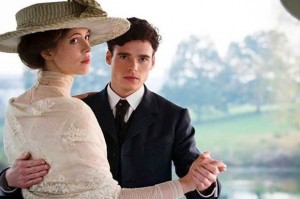 If you push something so far, in a sort of unfashionable whatever… then it actually starts to become quite interesting because you look at something in a different way. This film does it in a strange way, it takes romanticism and things that could be perceived as melodrama or bourgeois concerts but treats them with a sort of realism. It’s not a conventional story and the choices – in the way that it’s filmed and acted – are not conventional or bourgeois, so there’s a weird push and pull there that makes you question it. It becomes something that stands on its own. The things that aren’t trendy, hip or cool are what make it trendy, hip and cool or whatever. There’s a bravery that comes with that.
If you push something so far, in a sort of unfashionable whatever… then it actually starts to become quite interesting because you look at something in a different way. This film does it in a strange way, it takes romanticism and things that could be perceived as melodrama or bourgeois concerts but treats them with a sort of realism. It’s not a conventional story and the choices – in the way that it’s filmed and acted – are not conventional or bourgeois, so there’s a weird push and pull there that makes you question it. It becomes something that stands on its own. The things that aren’t trendy, hip or cool are what make it trendy, hip and cool or whatever. There’s a bravery that comes with that.
What unconventional choices do you mean?
In the sort of potboiler version of this movie they fall into each other’s arms and kiss, embrace and there’d be a lot more screaming and crying, and extremity. I think that we tried to ground it, push it right to the brink and cut. It makes it refreshing. People don’t make films like this anymore.
Period romance?
Not period romance. I mean that I haven’t seen the lack of shame in expressing emotional things. It’s that unabashed romanticism that’s still rooted in something that doesn’t look like soap opera.
You have made many movies very different to one another. Which genre is more comfortable?
I’m comfortable acting, I like doing what I’m doing, I’m not genre-specific. I hope I’m not, I don’t want to be. I’m comfortable doing lots of different things.
What do you think about Ben Affleck as Batman?
I think it’s kind of amazing. I’m excited for him. I am actually!
You worked with both Johnny Depp and Robert Downey Junior – what do you think about them?
They are both really big movie stars. And surprisingly great people at the same time; they definitely share that. I really liked both of them.
If someone is widely recognised, does it make any difference on set?
That’s a good question. Not really; there’s a levelling moment. There’s a point when they walk in the room for the read-through and you think: “Oh look, they really look like that.” However, it stops very quickly because everyone’s got a common goal so it doesn’t really affect things. Unless they’re people that have enormous demands, but I’ve never worked with those.
Would you like to direct one day?
Yes I do… I think.
Do you have any other projects coming up?
I have a movie in England and in Europe in a month or so called Closed Circuit with Eric Bana – a political thriller. Then I’m doing a play on Broadway – National by Sophie Treadwell. It was made in the late 20s, it’s an American piece, quite abstract, quite hard-hitting and quite feminist. It doesn’t get done all that often and is really fascinating. The last production that was well-known was at the National Theatre in 1995 with Fiona Shaw. I’m excited about it. We start performing around Christmas.
Would you consider yourself a feminist?
Yes!
What does it mean for you in your everyday life?
Being a woman today and voting and all the liberties we take for granted equates to being a feminist really.
Filippo L’Astorina, the Editor
Read our review of A Promise here.
For further information on the 70th Venice Film Festival visit here.
Follow our daily reports from the Venice Film Festival here.

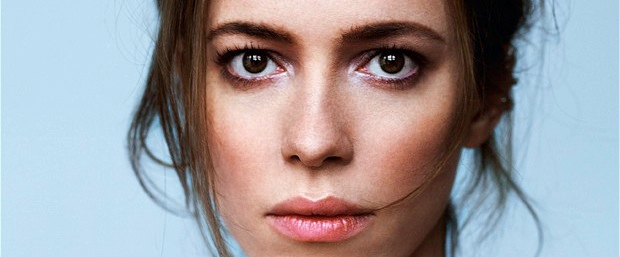

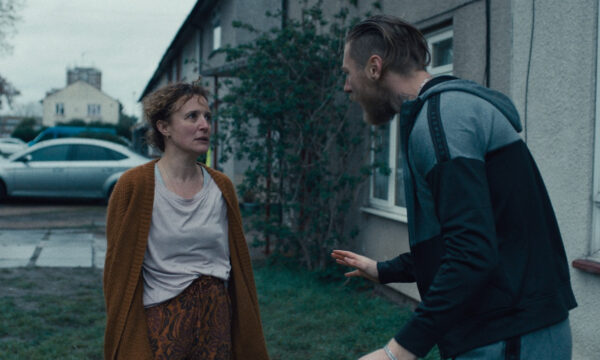

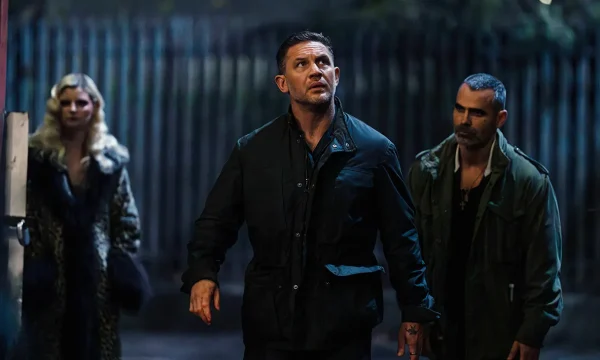
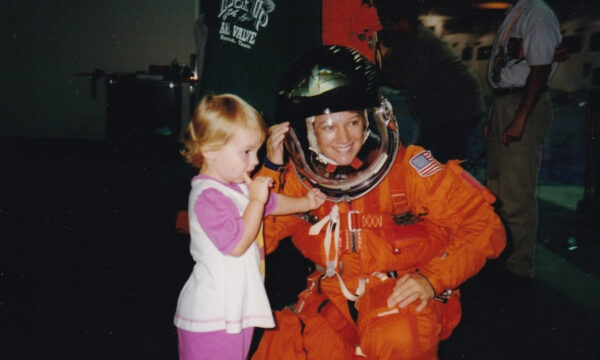
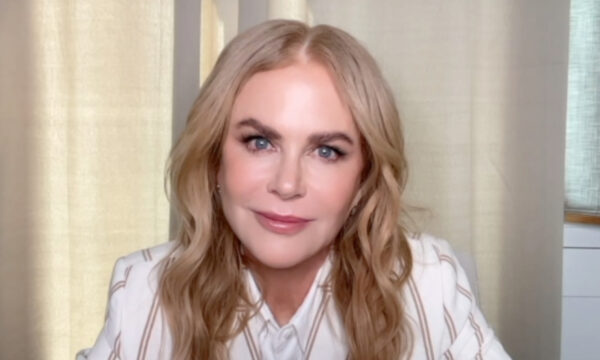
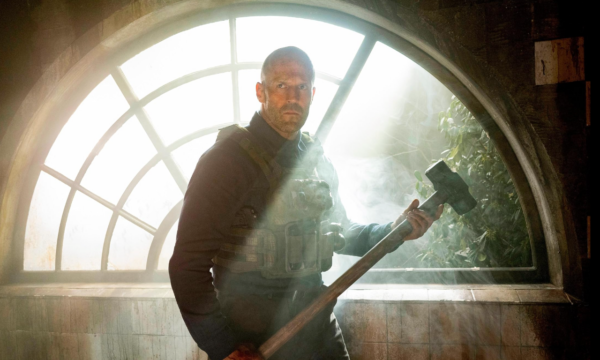
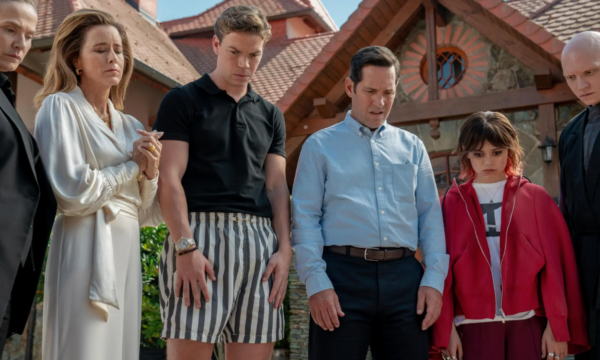










Facebook
Twitter
Instagram
YouTube
RSS